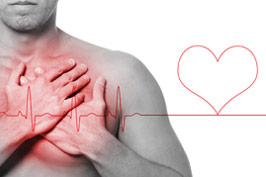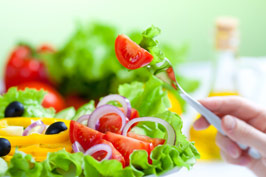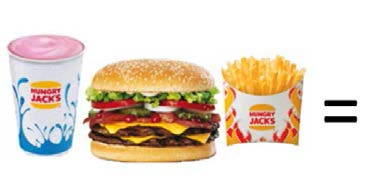Cleanse Your Pallets and Stop The Shake!
- May 7, 2015
- Posted by: Spotscreen
- Category: Articles
The busy western lifestyle in conjunction with a high demand for convenience foods has resulted in a highly processed food culture and our salt adapted pallets.
Sodium’s mechanisms in the human body:

- Cell membrane maintenance
- Active transport of molecules across cell membrane
- Muscle contraction
- pH balance
Sodium like other minerals is essential for normal bodily function. Excreted in urine, sodium losses are dependent on; overall diet, sodium intake, exercise level and sweat rates, hydration status and heat exposure.
Sodium and Potassium (found in fresh fruit and vegetables) work together to regulate bodily fluids. An imbalance in this ratio is what can put us at risk of hypertension and nutrition deficiencies.
| High Potassium intake | – Increased urinary sodium excretion which is favourable |
| High Sodium intake | – Increased urinary excretion of calcium can lead to poor bone density – Fluid retention overworks the heart which is NOT Favourable |
High sodium intake risk factors:
- Elevated Blood pressure; risk factor for CVD and renal disease
- Obesity and overweight
- Kidney disease; when consumed in excess kidneys cannot excrete sodium as fast as we eat it
- Hypertension; increased risk of stroke and heart disease
and the elderly are more sensitive to sodium
Sodium is found primarily in:
- Natural foods – fruits and vegetables; small levels in natural state
- Processed foods; high levels often as a preservative
Forms of Sodium:
- Sodium chloride (account’s for 90%) – Table and sea salt
- Sodium Bicarbonate (baking soda)
- Monosodium glutamate (MSG)
- Sodium phosphate – food additives
- Sodium Alginate – texture enhancer in ice-creams and chocolate
- Sodium carbonate
- Sodium Benzoate – preservative mainly in condiments
- Sodium nitrite – cured meats and sausages
Tips to reduce your sodium intake
- Read labels particularly canned food items; low salt or no added salt: <120 mg/day
- Steam foods; avoid boiling as potassium, nutrients and flavour is lost in the water which will make you more inclined to add salt
- Make your own homemade salad dressing
- Choose unsalted snack options; nuts
- Cut out processed foods
- Cook! Take control of what goes into your meals and respectively into your mouth
Enhance your cooking with real natural flavours. Retrain your taste buds to enjoy the true flavours of food with herbs and spices rather than salt.
Seasoning alternatives:
- Basil
- Balsamic vinegar
- Chives
- Curry Powder
- Cinnamon
- Garlic
- Ginger
- Nutmeg
- Rosemary
- Thyme

Herbs and spices offer much more than just flavour. Turmeric for example has antioxidant and anti-inflammatory properties.
Sodium content in common food items
| Food Item | Sodium (mg) | Energy (kJ) |
|---|---|---|
| Apple (150g) | 3 | 282 |
| Tomato (150g) | 12 | 111 |
| Carrot (100g) | 40 | 132 |
| Chicken breast, raw (230g) | 65 | 153 |
| KFC Chicken, fried (1 Piece) | 1010 | 1945 |
| Homemade beef burger (280g) | 352 | 1210 |
| Whopper (442g) | 2386 | 5085 |
| Homemade chips, oven baked (150g) | 58 | 590 |
| Fries, medium (164g) | 452 | 1601 |
| Strawberry Shake (305ml) | 326 | 1824 |

Sodium 3164 mg
| Recommendations | ||
|---|---|---|
| Adequate Intake: | 460 – 920 mg/day | |
| Upper Level: | 2,300 mg/day = 1 tsp of Salt | |
| Suggested Dietary Intake: | 1600mg/ day | |
Key points for Hypertension prevention and management
- Reduce dietary sodium intake: no more than 2,300 mg or 100 mmol per day. Australians are currently consuming more than double this upper level
- Adopt a nutritious diet: rich in fruits, vegetables and low fat dairy whilst reducing saturated and total fat intake
- Weigh reduction: maintain a healthy BMI (18.5-24.9 kg/m2)
- Exercise: engage in regular aerobic activity for at least 30 minutes each day
- Drink in moderation: Limit alcohol consumption to no more than two standard drinks for men and one for women per day. Drink water instead!
For further information or enquiries, please contact us.
Download this Article (PDF)
Leave a Reply
You must be logged in to post a comment.
